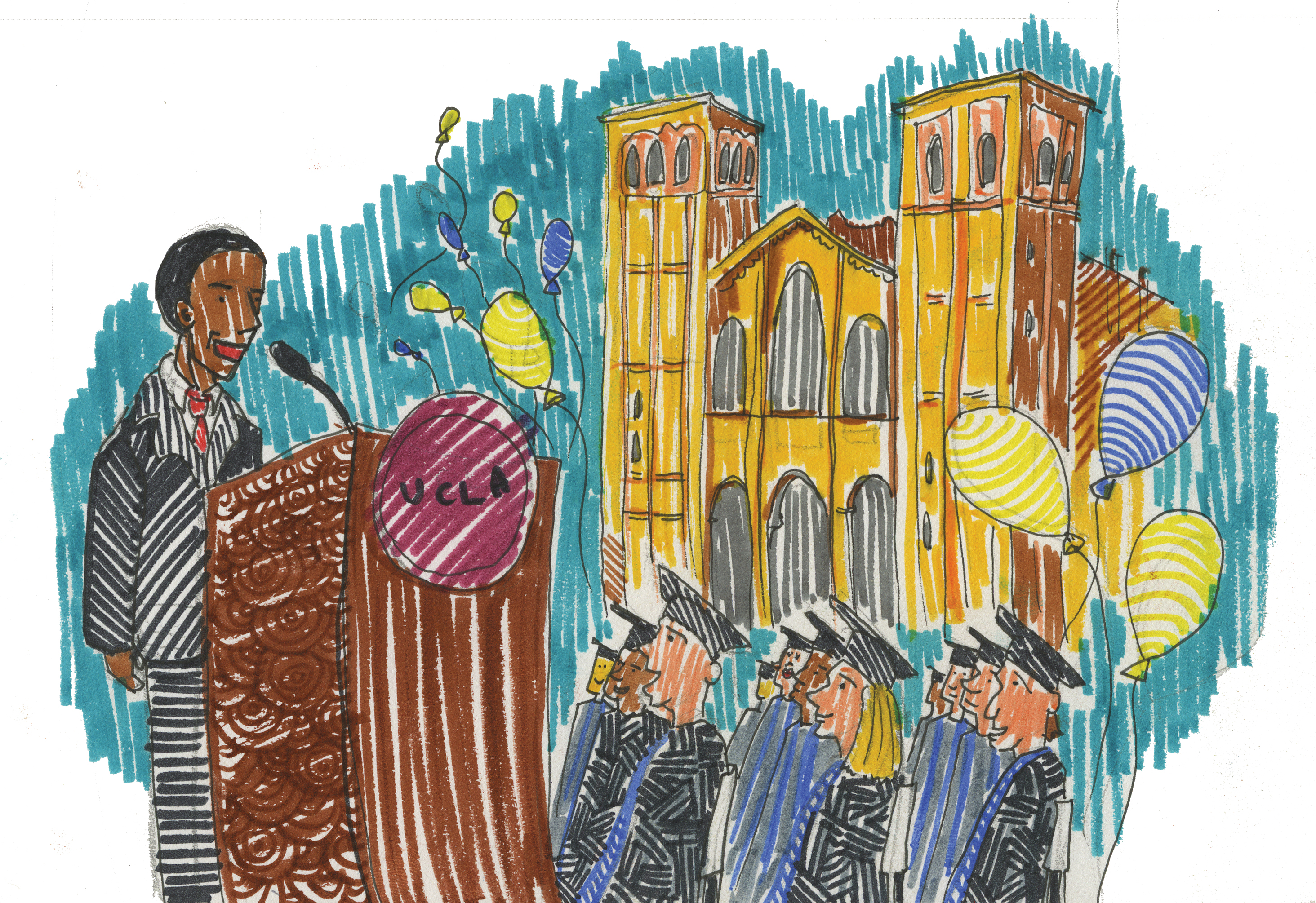The keynote speaker for the 2011 graduation ceremony has been announced and it’s not a “Clinton” or a “Franco.” Instead, Aaron Williams, director of the Peace Corps, will address graduating seniors.
A distinguished but unrecognizable speaker means our graduation will not be about the speaker but will be about the graduating seniors, as it should be. The speaker is also someone who reflects the spirit of UCLA, someone students will be able to relate to.
Further, the ceremony will help students maintain a sense of community service as they go off to new jobs or other universities.
UCLA is inextricably linked with community service. As a student body, we tutor children in Los Angeles, provide medical help for people in Honduras, work with orphans in Tanzania and dance to raise money to combat pediatric AIDS.
UCLA also ranked as the No. 1 U.S. university for student community service participation. More than half of Bruin undergraduates participate in community service.
So even though it is not traditional for graduation to be framed around a single topic, it makes sense that this year’s ceremony will be service-themed. Prior to this year’s commencement, the only one with a theme was last year’s, which celebrated the life of Coach John Wooden.
The 2011 graduation committee should be commended for choosing a pertinent theme and for finding a great speaker. Williams represents one of the most recognizable symbols of service: the Peace Corps.
The program is celebrating its 50th anniversary this year and has a history tied to UCLA, since our campus served as one of the first training grounds for Peace Corps volunteers, according to Julie Sina, chief of staff of the College of Letters and Science.
UCLA’s service-mindedness as an institution seems to stem from the idea that a public school should be a vehicle for public good.
Colin Jones, a Peace Corps volunteer and UCLA alumnus, said he believes UCLA’s liberal arts approach to educating students helps volunteers adjust well to new environments and maintain open minds about cultural differences.
It also doesn’t hurt that UCLA teaches dozens of languages for those wishing to work or volunteer abroad.
Williams can truly connect with students. He himself is a former Peace Corps volunteer, and UCLA is one of the top colleges where the Peace Corps recruits volunteers.
For the last couple of years, graduation speakers have been the center of controversy.
In fact, the seniors have only seen commencement debacles. Former president Bill Clinton dropped out as the speaker two years ago because of strikes and James Franco flaked at the last minute, presumably because of student complaints.
This year, the commencement committee chose the speaker in January (Clinton was announced in March and Franco in May), showing initiative to have a good ceremony and avoid hiccups.
It is also comforting to know that the day will be about us, the graduating seniorsÂ, and not about a former head of state who just happens to be speaking on campus.
While some students will gripe about the speaker not being famous enough, they should reflect on their time at UCLA and the number of prominent speakers that have come to campus for public speeches (including Clinton himself).
This service-themed ceremony will help serve as a transition from college, where it is convenient to volunteer for a cause like Dance Marathon, to the “real world,” where service is less common among young professionals yet just as necessary.
The idea is not that UCLA students’ volunteer hours may impress graduate schools or employers. The idea is that we are an investment of the public and are accountable to provide for it. We can be agents of change for the better.
As students, we do much to help the lives of others. That should not stop once we receive our degrees.
Think we should invite Sarah Palin instead? E-mail Ramzanali at aramzanali@media.ucla.edu. Send general comments to opinion@media.ucla.edu.
